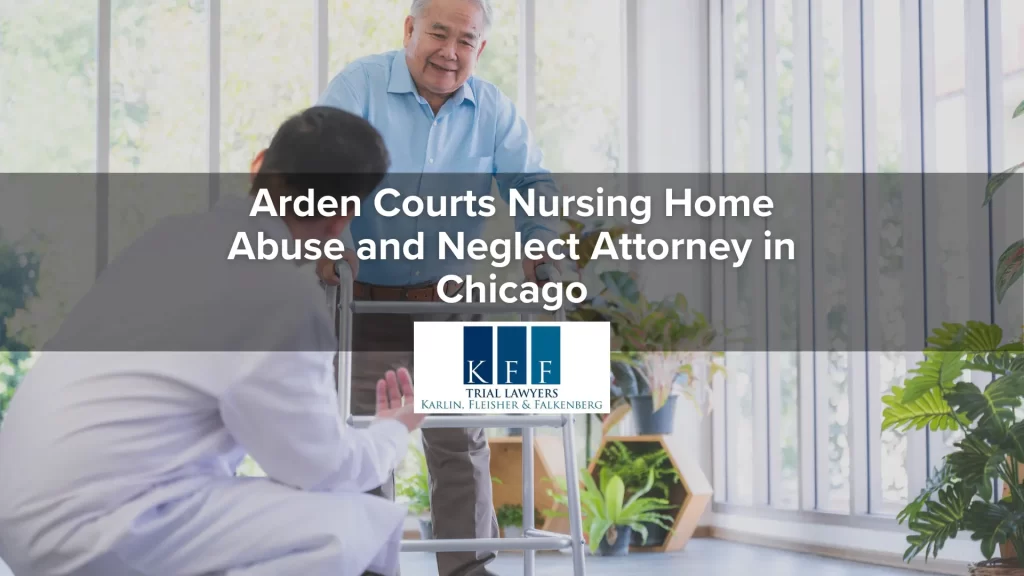
It is a hard truth to realize that a loved one’s mind isn’t what it used to be. Conditions that impact the way a family member thinks, interacts and remembers are heart-wrenching to watch take hold. Conditions such as dementia or Alzheimer’s make us realize that we are woefully incapable of providing the type of medical and social care our family member deserves. It is these types of conditions, in particular, that send many elderly adults to nursing homes, facilities like Arden Courts, a home that claims to specialize in memory care. Unfortunately, studies published by the National Center on Elder Abuse reveal that as many as 27 to 55 percent of adults with a condition like dementia will become the victims of abuse. Why the huge variance? Because many cases are underreported. Patients with mental conditions tend to be silent victims.
If your loved one is being cared for at a nursing home or memory-care facility, it is up to you to remain vigilant. If you have suspicions that your family member is being abused or taken advantage of in any way, contact us right away.
At Karlin, Fleisher & Falkenberg, LLC, we have experienced abuse attorneys with the necessary resources to investigate your claim thoroughly. We leave no stone unturned, and if we find evidence of wrongdoing, we can help you aggressively pursue the justice you and your family deserve. Call us at 312-346-8620 to schedule a free consultation.
What Is Nursing Home Abuse?
Nursing home abuse is defined as any type or form of harm that impacts an elderly resident whose care has been given over to a nursing home or a long-term care facility. Abuse can take many different forms and is typically carried out by staff members or caregivers hired by the nursing home itself. The very people trusted to care for our aging family members are the ones who abuse their position. Numbers compiled by the World Health Organization find that at least one in six elderly adults experience some form of abuse while living in a nursing home setting.
Types of Nursing Home Abuse
While the definition of nursing home abuse seems straightforward, determining if nursing home abuse is taking place can actually be quite difficult. That’s because there are many different types of abuse, each with a unique set of warning signs and hallmarks. It is important for family members to understand that abuse doesn’t always leave bruises.
Here are the most common types of abuse that elderly residents may suffer:
- Physical Abuse – This is the form of abuse that comes to mind most often. This type of abuse is the act of causing physical injuries to an elderly resident. Unexplained bruises, cuts, burns, broken bones, or other forms of injuries can be calling cards of physical abuse.
- Emotional Abuse – Emotional abuse leaves its own scars, just not physical ones. Emotional abuse consists of a caregiver using verbal threats, humiliation tactics, yelling, isolating, or otherwise berating the elderly. While this type of abuse does not directly harm a resident’s body, it does cause significant harm and impact on their mental health and overall well-being. A family member developing sudden depression or anxiety, changes in sleep or eating patterns, or withdrawal from social or other activities may be warning signs of emotional abuse.
- Sexual Abuse -Sexual abuse includes any type of sexual contact with an elderly resident that they did not or cannot consent to. This type of abuse can be prevalent with patients who have a decreased mental capacity due to dementia or who are unable to communicate because of a medical condition. Signs of this type of abuse may be pelvic injuries, problems sitting, bruises or marks in the genital area, and anxiety or depression.
- Financial Abuse – Financial abuse is when a staff member or caregiver takes advantage of an elderly resident for their own financial gain. This could be stealing property from a resident, forging checks, or using scams or false investment tactics. It is important to monitor financial accounts for suspicious activity or a sudden change in their financial situation.
Is Neglect Abuse?
 In a word, yes. The National Center on Elder Abuse categorizes neglect as a form of elder abuse. In fact, they estimate that roughly 95% of nursing home residents have been neglected or have witnessed another resident being neglected by a caregiver.
In a word, yes. The National Center on Elder Abuse categorizes neglect as a form of elder abuse. In fact, they estimate that roughly 95% of nursing home residents have been neglected or have witnessed another resident being neglected by a caregiver.
There are multiple different types of neglectful behavior, including medical neglect, neglect of basic needs, neglect of hygiene, and social neglect. Medical neglect involves a facility or staff member failing to properly attend to a resident’s medical condition or concerns. That could be ignoring doctors’ orders, failing to give needed medication, or improperly administering medication. It could also include failing to notice or treat new or emerging medical symptoms or conditions.
Neglect of basic needs is a form of abuse where caregivers fail to provide essentials like water, food, and a safe environment. Malnutrition and dehydration are both major signs that neglect may be taking place.
Here are some other warning signs that neglect may be taking place:
- Unexplained injuries
- Loss or lack of mobility
- Unsanitary conditions at the home or in the resident’s room
- Malnutrition
- Dehydration
- Poor hygiene
- Bedsores or skin infections
- Changes in behavior
When you first see the potential signs of abuse, it can be difficult to know who to turn to. Our nursing home abuse attorneys will listen to your story, and help you identify the first steps to take to ensure your family member’s safety.
Can Karlin, Fleisher & Falkenberg, LLC Help?
At Karlin, Fleisher & Falkenberg, LLC, our number one goal is to ensure the health and well-being of you and your family. That’s why we pride ourselves on offering you aggressive representation in a caring environment.
Don’t let a nursing home take advantage of your loved one – get the help you deserve today. Ignoring your suspicions will only make the situation worse. Many times, loves ones are afraid to come forward for fear of retaliation by the caregiver. In some situations, a medical condition may make it impossible for them to speak up. If they can’t use their voice, you need to use yours.
Call our nursing home abuse attorneys at 312-346-8620 for a consultation about your legal rights. Don’t wait for the abuse to get worse. If you have suspicions, let us investigate.
